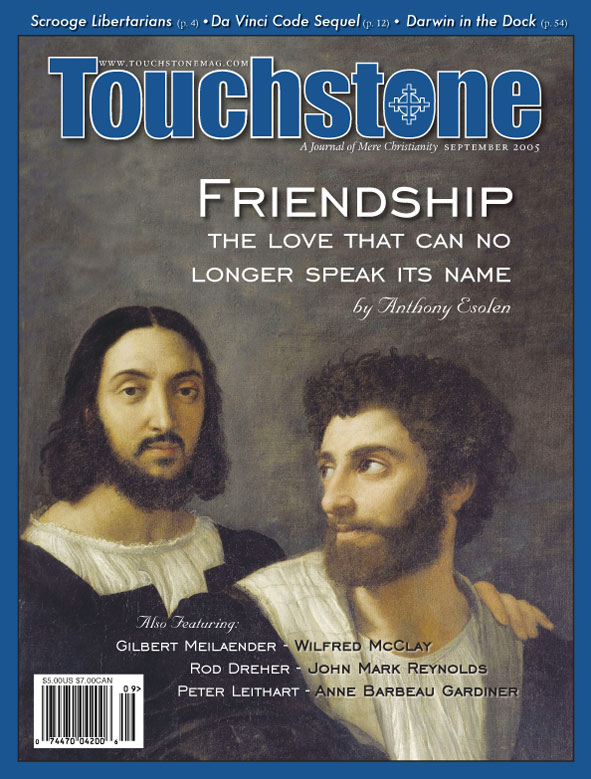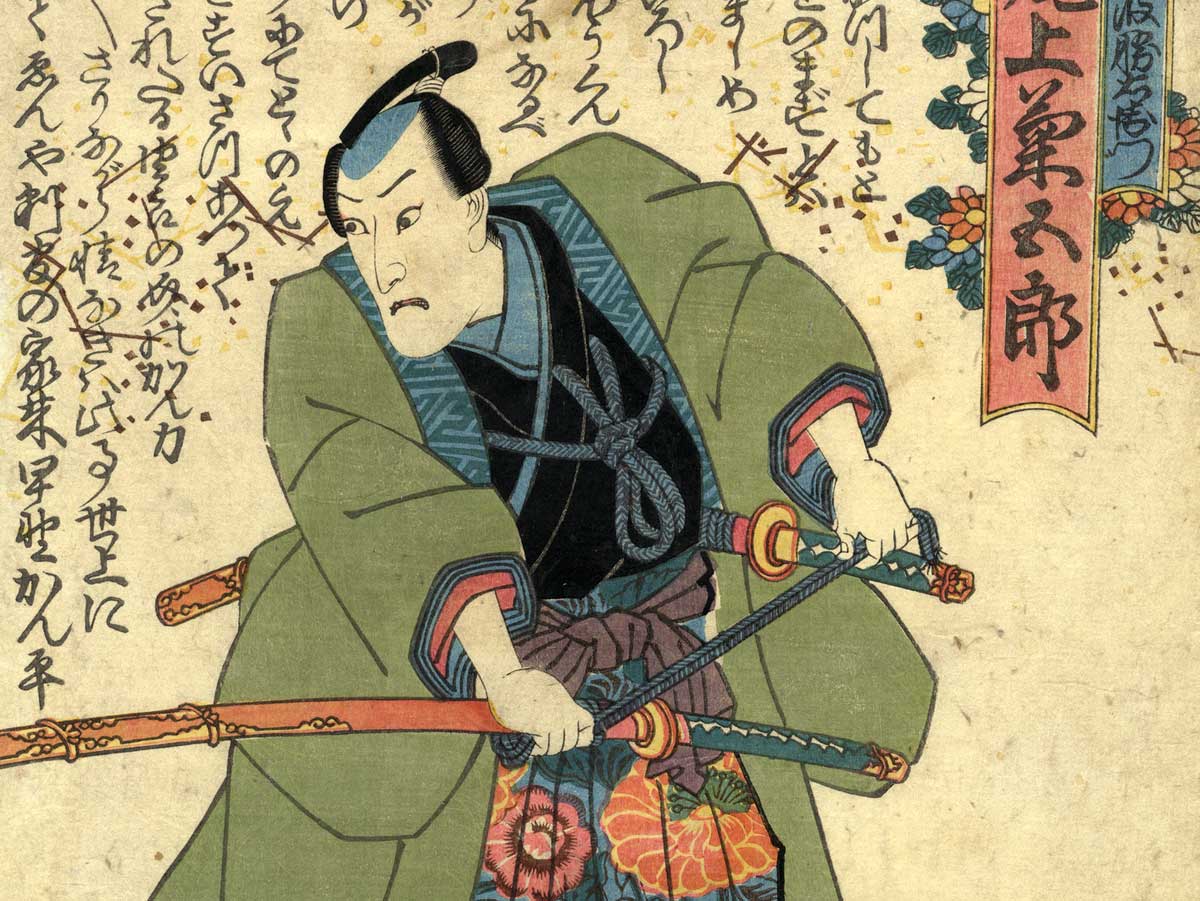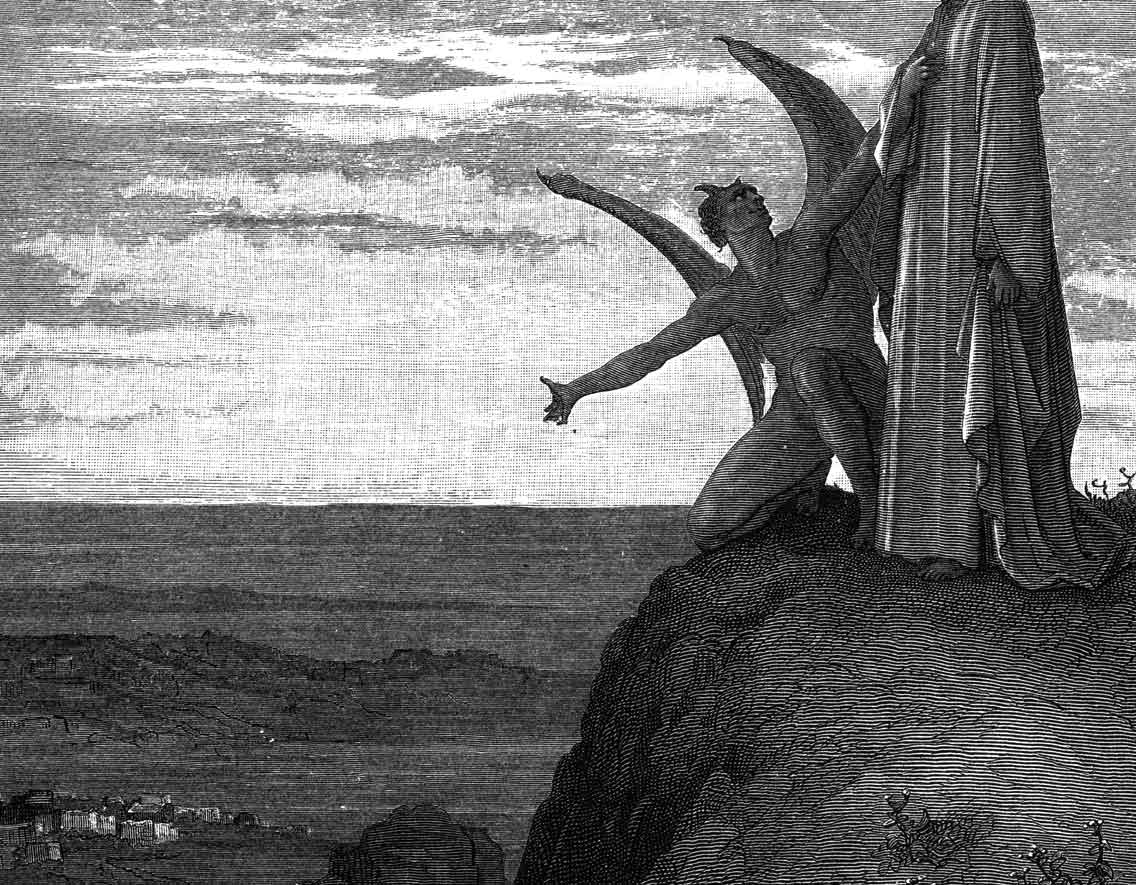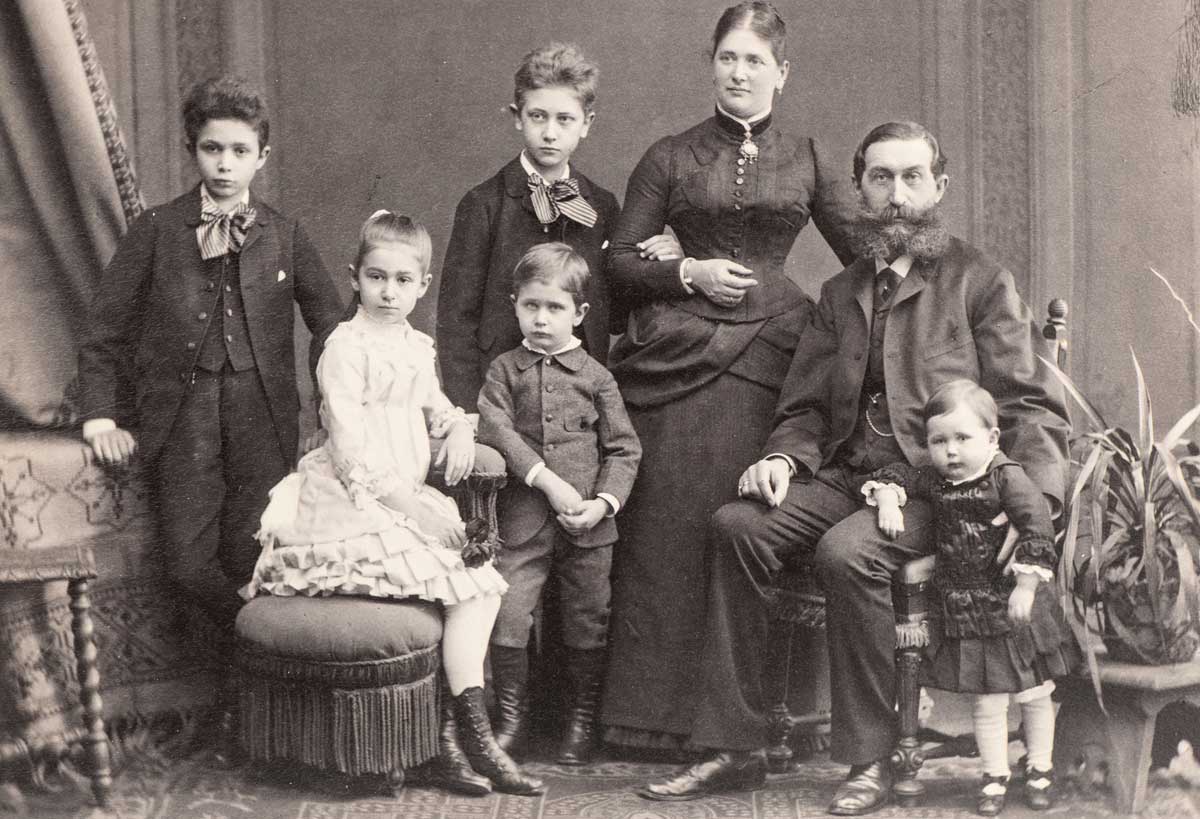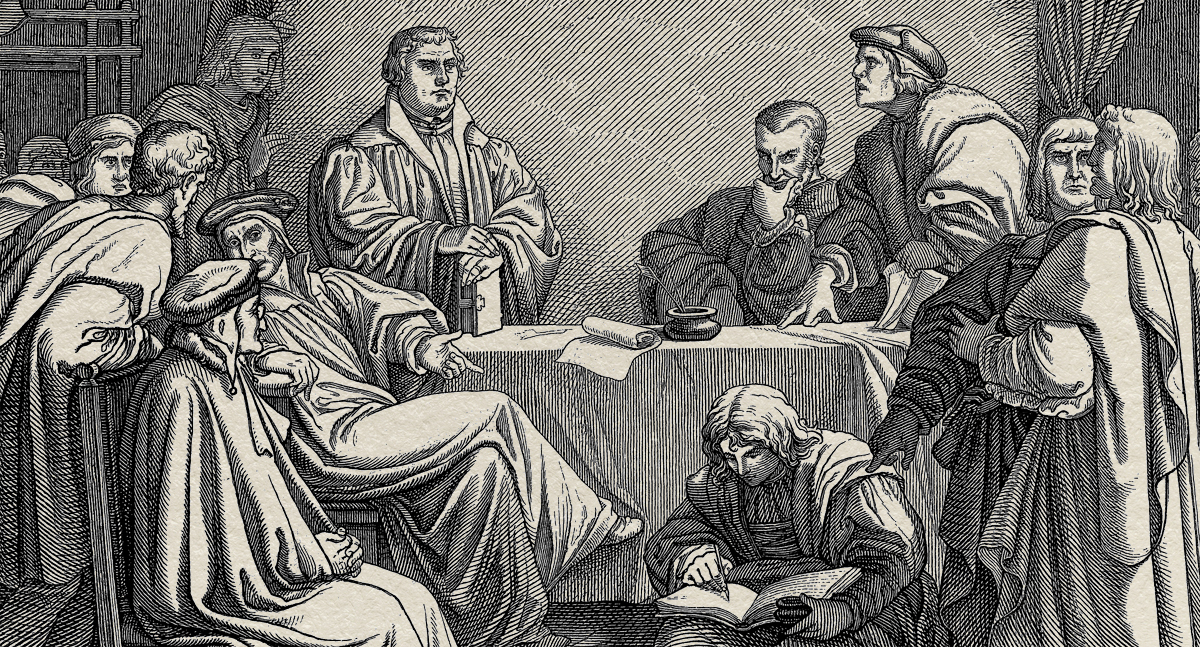Séances & Science
The Lessons of the Spiritualist Challenge to Darwinism
by John Mark Reynolds
At the end of the nineteenth century, it was obvious to the informed observer that materialism would triumph in Europe. The fruits of this victory were not hard to imagine: a decline in religious belief, an exaltation of humanity, and a rejection of traditional morals. Many conservative social and political leaders in Great Britain saw this coming destruction of their way of life and attempted to head it off.
Chief among the prophets of this coming cultural apocalypse was Sir Arthur Conan Doyle. Most famous as the creator of Sherlock Holmes, Doyle was a doctor, humanitarian, war hero, and academic polymath. Though he rejected the traditional Catholicism of his childhood, he fully embraced the values of late Victorian and Edwardian England. He was distressed by the rise of feminism, the decline in patriotism, and the crude manners of the machine age. Under the influence of his mother, he longed for a more chivalrous age.
Secular thinkers like Doyle believed that Darwin had delivered the mortal blow to traditional religious faith. Many English clerics and scientists felt that God could somehow be inserted into the evolutionary process. In this way, they hoped to preserve their academic and cultural viability. It would be impossible to think of a more disastrous move. It is possible to accommodate almost any two views with a strong enough motive to do so, but that does not mean that most people will buy into a compromise that they perceive as ad hoc.
Such was the case in England after Darwin. Men of good will would claim that the naturalism in Darwinism was an unnecessary philosophic extrapolation from an innocuous scientific theory. But such good-hearted men were philosophically naive. Darwinism most naturally fits with naturalism. When combined with an overwhelming bias toward methodological naturalism in science, it is no surprise that the culture moved toward naturalism and away from theism.
Tory Evolutionists
Whatever contemporary religious scholars believed they had found in the text of Genesis 1–11, Victorians knew what the historical church had almost universally taught. Adam and Eve were real people. They were the first parents of the human race. There was a man named Noah. He had gotten onto a boat with many animals.
For the Church, in a long, slow, disorganized retreat from these positions, the apologetic result was a disaster. Christians found themselves in the position of crying “just kidding” when time-honored notions were challenged. Evangelical Christianity was in serious trouble.
Doyle and many other cultural leaders were aware of the implosion of the Church. If they had any interest in religious matters, the feminized church would not meet their needs and the “manly” Christianity of the era lacked the intellectual and cultural appeal these men demanded. William Crookes, a leading scientist, Alfred Wallace, the co-discoverer of Darwinism, Doyle, and others at first embraced the new materialist faith but without abandoning their belief in Victorian values. If some religious people argued for theistic evolution, they argued for what can be called “Tory evolution.”
This conservative movement ranged from the cruel social Darwinism of Herbert Spencer to more genteel forms that attempted to provide biological justification for Victorian mores. This compromise, which was actually congenial to agnostics like “Darwin’s Bulldog” T. H. Huxley, failed to win general approval. Doyle and others came to believe that the naturalistic doctrine that human existence ended in death was destructive of societal well-being. Merely utilitarian arguments for the sacrificial pursuit of “social goods” are notoriously difficult to make.
John Mark Reynolds is the founder and director of the Torrey Honors Institute and Associate Professor of Philosophy at Biola University. The author of Toward a Unified Platonic Human Psychology (University Press of America), he writes an active weblog on religion and science (www.johnmarkreynolds.com). He, his wife Hope, and their four home-schooled children are members of St. Michael Antiochian Orthodox Church.
Share this article with non-subscribers:
https://www.touchstonemag.com/archives/article.php?id=18-07-032-f&readcode=1286
subscription options
Order
Print/Online Subscription

Get six issues (one year) of Touchstone PLUS full online access including pdf downloads for only $39.95. That's only $3.34 per month!
Order
Online Only
Subscription

Get a one-year full-access subscription to the Touchstone online archives for only $19.95. That's only $1.66 per month!
bulk subscriptions
Order Touchstone subscriptions in bulk and save $10 per sub! Each subscription includes 6 issues of Touchstone plus full online access to touchstonemag.com—including archives, videos, and pdf downloads of recent issues for only $29.95 each! Great for churches or study groups.
Transactions will be processed on a secure server.
more on evolution from the online archives
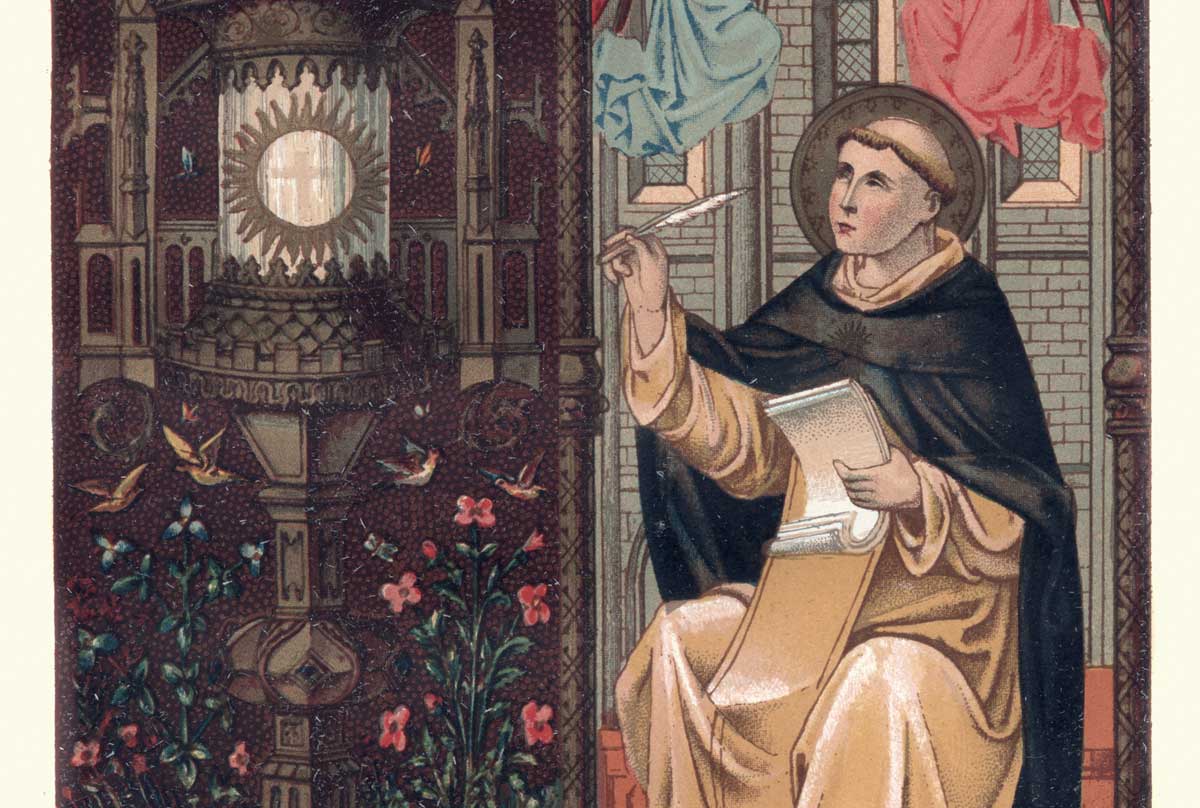
23.6—November/December 2010
Darwin, Design & Thomas Aquinas
The Mythical Conflict Between Thomism & Intelligent Design by Logan Paul Gage
more from the online archives
calling all readers
Please Donate
"There are magazines worth reading but few worth saving . . . Touchstone is just such a magazine."
—Alice von Hildebrand
"Here we do not concede one square millimeter of territory to falsehood, folly, contemporary sentimentality, or fashion. We speak the truth, and let God be our judge. . . . Touchstone is the one committedly Christian conservative journal."
—Anthony Esolen, Touchstone senior editor





